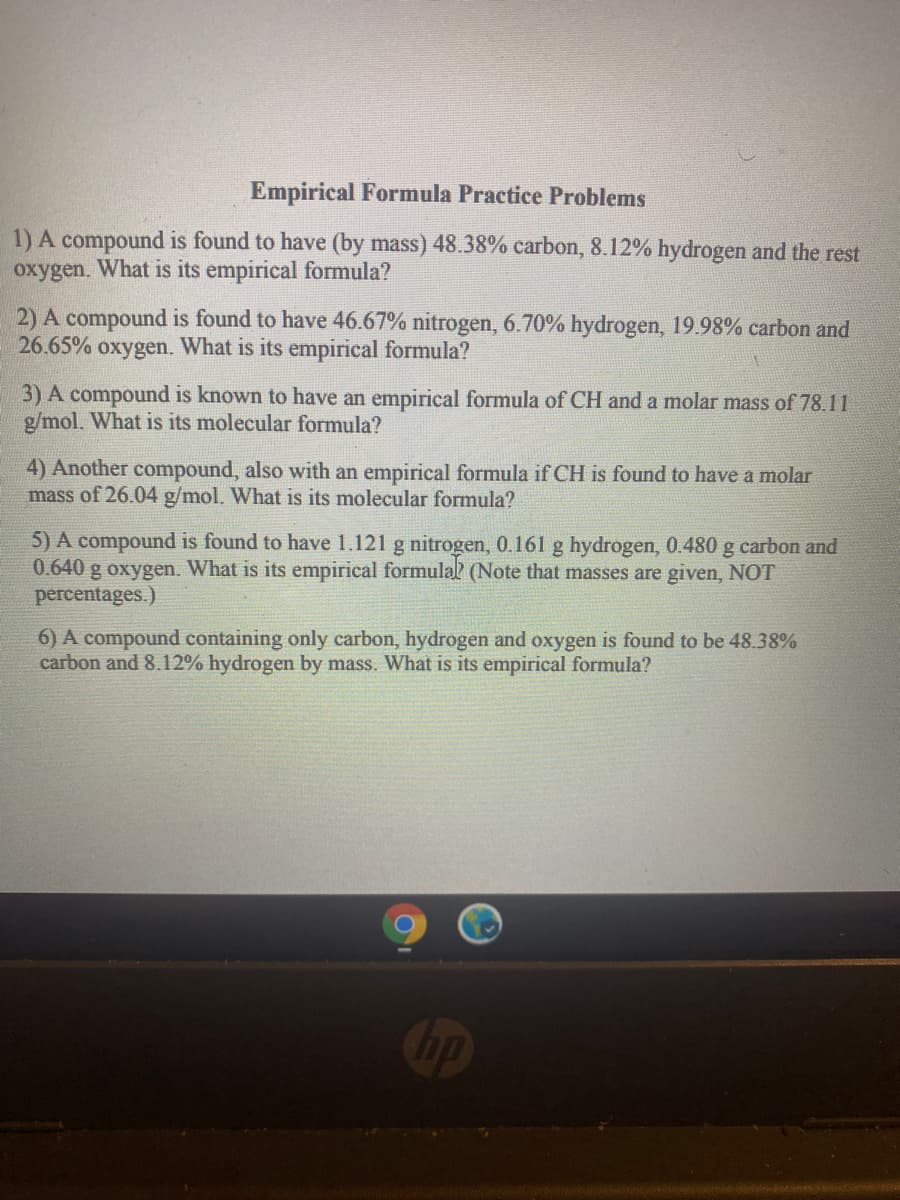Chemistry: Matter and Change
1st Edition
ISBN:9780078746376
Author:Dinah Zike, Laurel Dingrando, Nicholas Hainen, Cheryl Wistrom
Publisher:Dinah Zike, Laurel Dingrando, Nicholas Hainen, Cheryl Wistrom
Chapter10: The Mole
Section10.4: Empirical And Molecular Formulas
Problem 67SSC
Related questions
Question
Can you please help with these problems. Please do it on paper showing work so I can clearly see it and understand it. Thank you so much.

Transcribed Image Text:Empirical Formula Practice Problems
1) A compound is found to have (by mass) 48.38% carbon, 8.12% hydrogen and the rest
oxygen.
What is its empirical formula?
2) A compound is found to have 46.67% nitrogen, 6.70% hydrogen, 19.98% carbon and
26.65% oxygen. What is its empirical formula?
3) A compound is known to have an empirical formula of CH and a molar mass of 78.11
g/mol. What is its molecular formula?
4) Another compound, also with an empirical formula if CH is found to have a molar
mass of 26.04 g/mol. What is its molecular formula?
5) A compound is found to have 1.121 g nitrogen, 0.161 g hydrogen, 0.480 g carbon and
0.640 g oxygen. What is its empirical formulal (Note that masses are given, NOT
percentages.)
6) A compound containing only carbon, hydrogen and oxygen is found to be 48.38%
carbon and 8.12% hydrogen by mass. What is its empirical formula?
Cip
Expert Solution
This question has been solved!
Explore an expertly crafted, step-by-step solution for a thorough understanding of key concepts.
This is a popular solution!
Trending now
This is a popular solution!
Step by step
Solved in 2 steps with 1 images

Knowledge Booster
Learn more about
Need a deep-dive on the concept behind this application? Look no further. Learn more about this topic, chemistry and related others by exploring similar questions and additional content below.Recommended textbooks for you

Chemistry: Matter and Change
Chemistry
ISBN:
9780078746376
Author:
Dinah Zike, Laurel Dingrando, Nicholas Hainen, Cheryl Wistrom
Publisher:
Glencoe/McGraw-Hill School Pub Co

Chemistry: Matter and Change
Chemistry
ISBN:
9780078746376
Author:
Dinah Zike, Laurel Dingrando, Nicholas Hainen, Cheryl Wistrom
Publisher:
Glencoe/McGraw-Hill School Pub Co